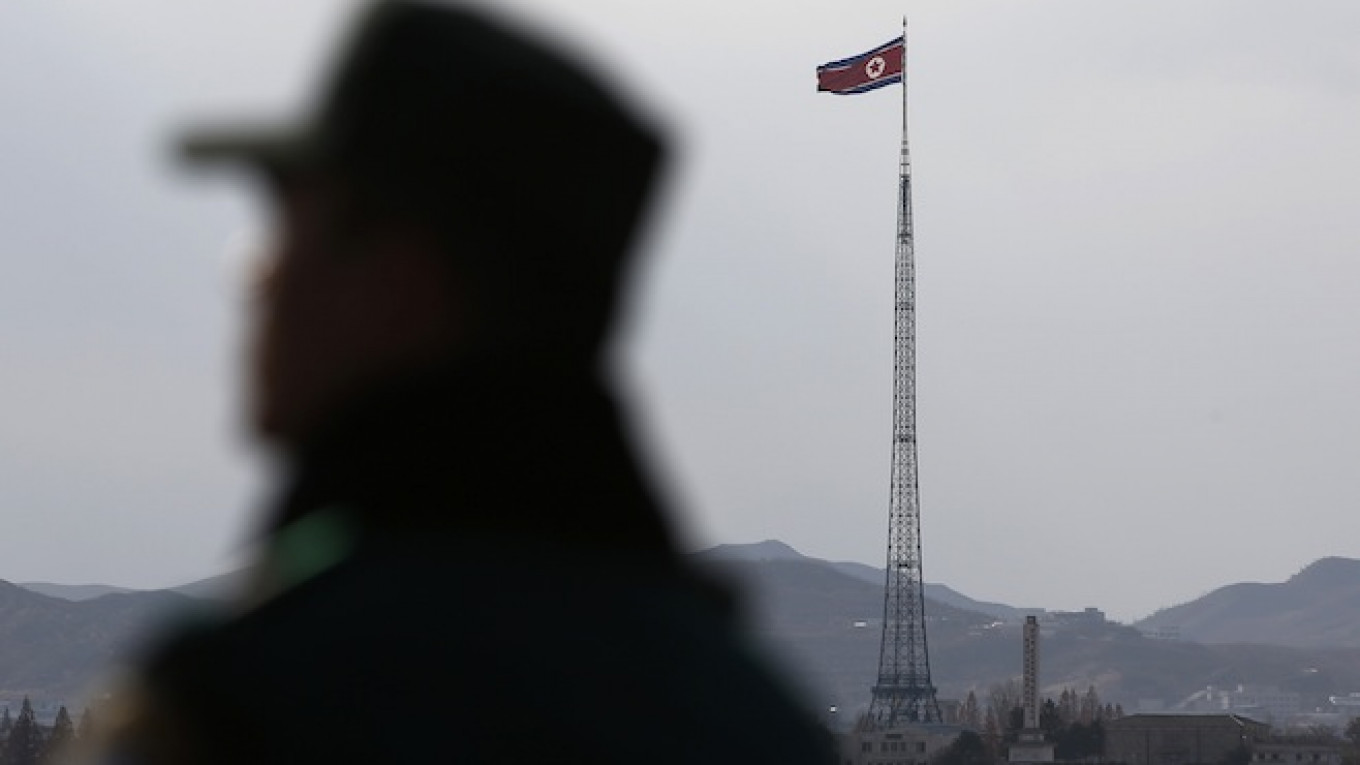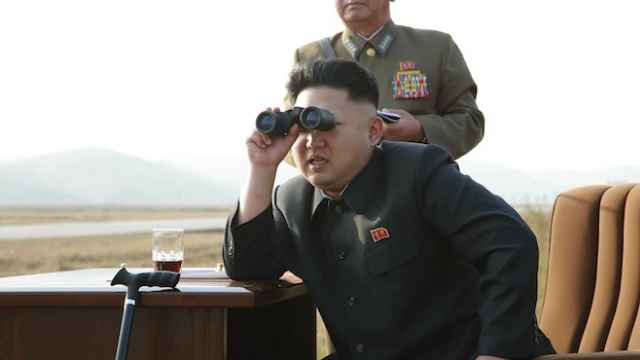A new governmental agreement drafted by Russia and North Korea will see Moscow hand over Koreans who have fled the totalitarian regime in their native country.
The deal comes at a time when Russia is strengthening ties with the isolationist leadership in Pyongyang, apparently to snub the United States, said Andrei Lankov, a leading Russian expert on Korea.
The agreement may yet prove to be a formality, experts said — but Russia has handed over escaped North Koreans before.
Russia has similar agreements with many countries and blocs, including Ukraine and the EU. But the North Korean deal stands out because the UN has explicitly advised against the forcible repatriation of North Koreans, who face jail and even execution for fleeing the motherland.
The agreement, available on the Russian government's website, outlines expulsion rules and procedures for illegal immigrants from North Korea, whose leadership has been accused by the UN of crimes against humanity.
The same rules would apply to Russians illegally entering the far eastern state, though experts polled for this story could not recall a single such instance.
The draft is dated Sept. 2, but has so far flown under the media radar. The text says the deal is to be finalized by the Federal Migration Service, which did not return a request for comment sent Thursday. Nor did the government's press office.
A Trickle of Refugees
Experts estimated in the mid-2000s that at least 10,000 North Koreans were arriving every year to work in Russia, which has a 19-kilometer border with their country.
That figure, however, only includes those who arrived in Russia legally. Most are working migrants employed in the logging and construction industries.
Illegal migrants from North Korea number several hundred: only a fraction of their community in China, their main destination, estimated by the UN at 300,000, said Lyubov Tatarets of rights group Memorial.
Tatarets, based in the far eastern city of Blagoveshchensk, has provided legal help to some 30 North Koreans in Russia.
"Most stay undercover and live here for years," she said by telephone Thursday.
But the North Korean refugees arriving are increasingly better educated than commonly believed, and know to seek legal help, said Korea scholar Lankov, who teaches at Kookmin University in Seoul.
Russia has an agreement on illegal immigrants with North Korea, but it dates back to the 1950s, said Yelena Burtina of migrant rights group Civil Assistance.
Moscow appears to have no cohesive governmental policy on North Korean asylum seekers as yet, experts agreed. Migration authorities have expelled some and allowed others to stay, or at least safely leave for third countries, though no statistics are available.
In a fresh court case this week, Memorial succeeded in getting the decision overturned of the Federal Migration Service to deny asylum to a North Korean refugee, identified only as Kim, who has fled North Korea twice.
During the famine of 1997, Kim escaped to China, but later tried to move to Russia, fearing extradition, according to Memorial. However, he was relying on an old map that still depicted the Soviet Union instead of Russia, and so ended up at the border of Kazakhstan, which repatriated him. He was one of the few survivors of a mass breakout from a labor camp last year, and managed to get to Russia — where he was arrested and initially denied asylum.
Russian authorities may be afraid of granting asylum to North Korean refugees in case those who currently live illegally in China move to Russia en masse, Tatarets said.
A Milder Crime
Official Pyongyang has recently launched a crackdown on runaways, disgruntled that its supposedly loyal citizens are ready to bolt the country at the earliest opportunity, Lankov said.
The new draft agreement does not stipulate the immediate expulsion of illegal immigrants: That is only to be done at the request of the country hosting the immigrant. This means it may just be a technical document, experts said.
Penalties for fleeing North Korea are much softer than they used to be, Lankov said. While two decades ago, illegal emigration meant the firing squad, now it is more likely to be a moderate beating and up to a year in prison, unless the failed escapee publicly criticized the regime.
But extradition to North Korea was nevertheless decried by a special report of the UN Human Rights Council earlier this year.
"Extradition to North Korea is a crime, pure and simple," said Burtina of Memorial.
Teasing Goliath
Moscow and Pyongyang, geopolitical allies from Soviet times, have made moves to strengthen their alliance in recent months.
In May, Russia finally wrote off most of North Korea's Soviet-era debt. The following month, Pyongyang said it would loosen visa regulations for Russian investors and even allow them uncensored access to the Internet. And last month, the two countries sealed a $25 billion deal on modernizing 3,000 kilometers of North Korean railroads over the next 20 years.
The alliance is Russia's indirect retribution for U.S. sanctions over Moscow's annexation of Ukraine's Crimea in March and alleged meddling in the Ukrainian civil war, Lankov said.
"Moscow is showing the U.S. that it can create problems for it elsewhere in the world if pressure persists," the expert said.
"It's also a bit of an emotional reaction, backing a staunch anti-American David against Goliath," Lankov said. "Though to be fair, Pyongyang is actually much more pragmatic than they think in Moscow."
Editor's note: This article has been amended to correct information on and quotes by Tatarets, including her home city, her involvement with North Korean refugees; and possible explanation of the Russian government’s reluctance to admit them.
Contact the author at [email protected]
A Message from The Moscow Times:
Dear readers,
We are facing unprecedented challenges. Russia's Prosecutor General's Office has designated The Moscow Times as an "undesirable" organization, criminalizing our work and putting our staff at risk of prosecution. This follows our earlier unjust labeling as a "foreign agent."
These actions are direct attempts to silence independent journalism in Russia. The authorities claim our work "discredits the decisions of the Russian leadership." We see things differently: we strive to provide accurate, unbiased reporting on Russia.
We, the journalists of The Moscow Times, refuse to be silenced. But to continue our work, we need your help.
Your support, no matter how small, makes a world of difference. If you can, please support us monthly starting from just $2. It's quick to set up, and every contribution makes a significant impact.
By supporting The Moscow Times, you're defending open, independent journalism in the face of repression. Thank you for standing with us.
Remind me later.







